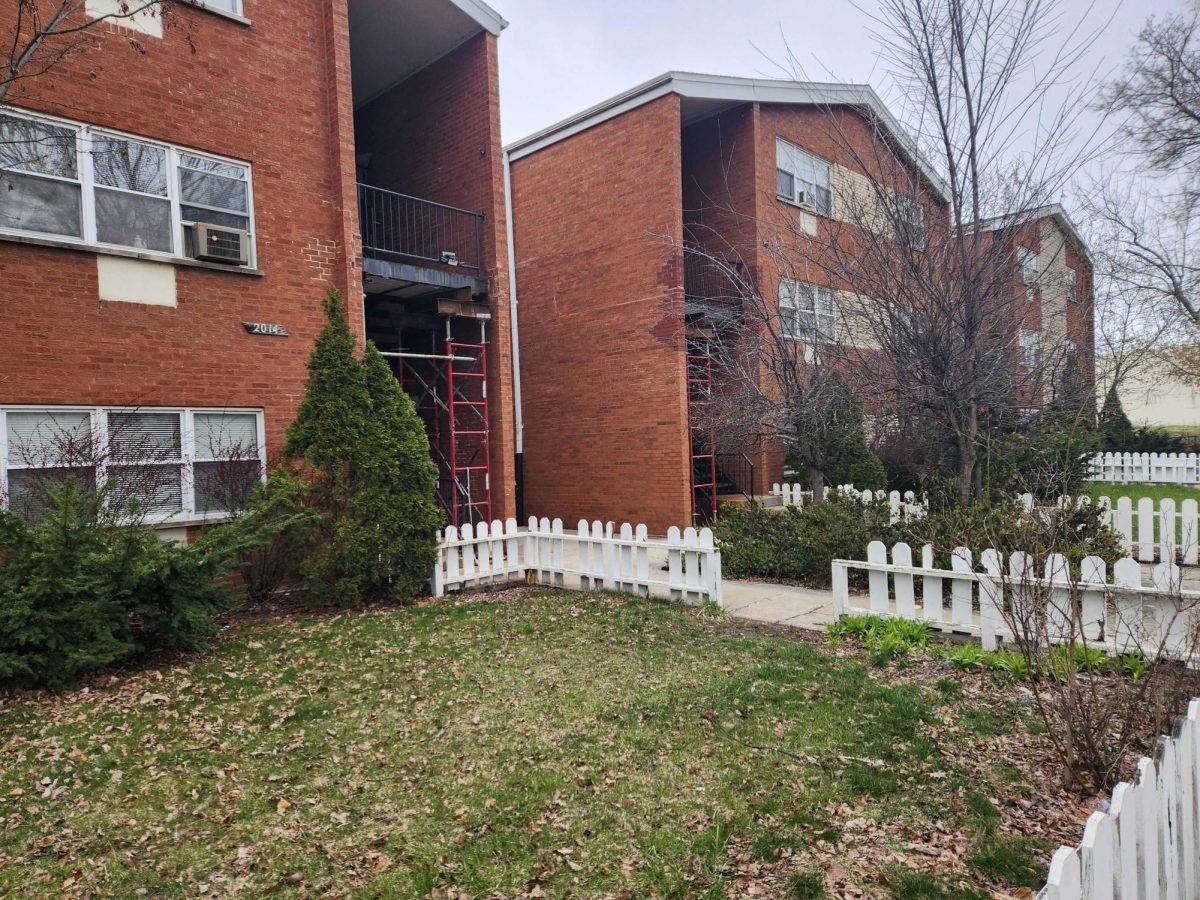Residents living at 2014, 2018 and 2024 Wesley Ave. are required to move out by May 13, city officials announced at a Tuesday meeting held with tenants and Evanston housing organizations.
In early February, the city sent a notice to the tenants requiring them to leave the 5th Ward buildings immediately because of structural deterioration in stairs and platforms. The first notice did not include a move out deadline.
Now, the city plans to follow its Dangerous Buildings Code and “take action to remove anyone who is still residing there” by the May 13 deadline, according to a city notice handed out to tenants at the meeting.
“If we don’t give a date at some point, the city is negligent,” Ald. Bobby Burns (5th) said.
The city instructed tenants to contact Connections for the Homeless case managers by 5 p.m. on April 12 to ensure housing assistance eligibility.
In a separate document handed out during the meeting, the city rejected most of the tenants’ requests for additional support.
The city originally offered housing search assistance, short-term lodging and living assistance and one year of rent subsidies — though tenants can qualify for a one-year extension.
Tenants asked for three years of rent assistance from the city, covered in full for the first year and subsidized to meet their current rates for the last two, but city officials denied that request.
In the notice, the city said it will not guarantee tenants substitute housing in Evanston because of a “housing shortage.” And, the city cannot guarantee tenants the right to return to the apartments if or when they are rehabilitated because it doesn’t own the properties, according to the notice.
“If we ask for a dollar, and you give us a dime, how are we being helped?” tenant William Carter said.
Discussions of what will happen to the buildings themselves underlied tenant concerns about a lack of city support.
Evanston Housing Coalition, the buildings’ owner, has not made any official decisions for the apartments’ future.
In deciding what comes next, stakeholders will need to balance financial feasibility with “humane considerations,” said Chris Hersee, Evanston Housing Coalition’s board president.
“If the decision is … just about dollars and cents, that could be shortsighted,” Hersee said.
Still, it might be “premature” to lock in on a plan at this stage, he said. He added that the Housing Opportunity Development Corporation, which has managed the apartments since 2022, was unable to secure funding for building rehabilitation.
At the meeting, tenants supported a specific proposal for the apartments: donate them to Community Partners for Affordable Housing, which could help secure funding for repairs. Sebastian Nalls, president of the Community Alliance for Better Government, brought up the idea with Gail Schechter, executive director of Housing Opportunities & Maintenance for the Elderly.
This plan could entail placing the apartments into CPAH’s community land trust and guaranteeing their affordability in perpetuity.
“If we can set the foundation in saying that … ‘CPAH is getting in contact with Evanston Housing Coalition to see if this can work,’ now there is a little more comfortability, at least from the tenants’ side,” Nalls said.
Others in the room, including Burns, said they were interested in exploring this idea more. Burns offered to facilitate further CPAH proposal discussions.
The tenants and community members working with them are also exploring a staggered rehabilitation plan where the apartment stairs are addressed building by building.
Still, the uncertainty of what will happen next — both for the tenants and the apartments they call home — has left the Wesley community frustrated.
“Our needs state that, once we get to wherever we land within the next two, three, six months, we’re going to know what’s going to happen in the next two, three years,” Carter said. “We’re not getting that from what (the city is) handing us today.”
Email: [email protected]
Email: [email protected]
Related Stories:
— City Council tables new 5th Ward affordable housing project
— Rising housing prices threaten to push out low- and middle-income Evanston residents






